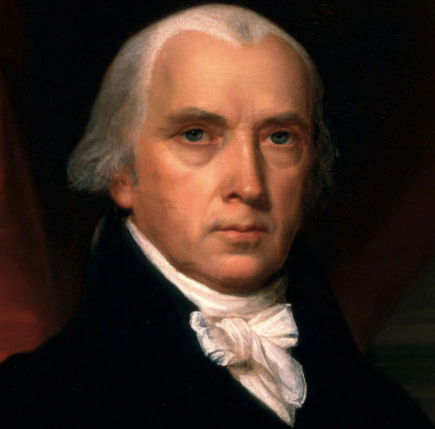Consolidation of the States: Thoughts by James Madison, 1791

James Madison authored a number of Essays (anonymously) for the National Gazette. At this juncture in American history, the acrimony between the first political parties (Federalists--Adams and Hamilton; Democratic-Republicans--Jefferson and Madison) was becoming heightened. Both parties founded newspapers in order to convey their ideas to the public. The Federalists founded the Gazette of the United States; the Democratic-Republicans founded the National Gazette.
This excerpt was published in the National Gazette on December 3, 1791. Of interest is Madison's desire to walk delicately between an actual consolidation of the states, politically speaking, and a consolidation of national sentiment.
August Glen-James, editor
. . . and let it be the patriotic study of all to maintain the various authorities established by our complicated system, each in its respective constitutional sphere, and to erect over the whole one paramount empire of reason, benevolence, and brotherly affection.
Much has been said, and not without reason, against a consolidation of the states into one government. . . . But if a consolidation of the states into one government be an event so justly to be avoided, it is not less to be desired, on the other hand, that a consolidation should prevail in their interests and affections. . . . In proportion as uniformity is found to prevail in the interests and sentiments of the several states, will be the practicability of accommodating legislative regulations to them, and thereby of withholding new and dangerous prerogatives from the executive [earlier mentioned as a negative result of consolidation]. Again, the greater the mutual confidence and affection of all parts of the Union, the more likely they will be to concur amicably or to differ with moderation in the elective designation of the chief magistrate, and by such examples to guard and adorn the vital principle of our republican constitution. [T]he less the supposed difference of interests and the greater the concord and confidence throughout the great body of the people, the more readily must they sympathize with each other, the more seasonably can they interpose a common manifestation of their sentiments, the more certainly will they take the alarm at usurpation or oppression, and the more effectually will they consolidate their defense of the public liberty.
Here, then, is a proper object presented, both to those who are most jealously attached to the separate authority reserved to the states and to those who may be more inclined to contemplate the people of America in the light of one nation. Let the former continue to watch against every encroachment which might lead to a gradual consolidation of the states into one government. Let the latter employ their utmost zeal, by eradicating local prejudices and mistaken rivalships, to consolidate the affairs of the states into one harmonious interest; and let it be the patriotic study of all to maintain the various authorities established by our complicated system, each in its respective constitutional sphere, and to erect over the whole one paramount empire of reason, benevolence, and brotherly affection.
